Home>Interior Design>What Bedding Material Is Best? Sleep Experts Advise


Interior Design
What Bedding Material Is Best? Sleep Experts Advise
Modified: January 19, 2024
Discover the best bedding material recommended by sleep experts for ultimate comfort and quality. Enhance your interior design with the perfect bedding choice.
(Many of the links in this article redirect to a specific reviewed product. Your purchase of these products through affiliate links helps to generate commission for Storables.com, at no extra cost. Learn more)
Introduction
When it comes to achieving a good night’s sleep, the bedding materials we choose play a significant role. The right bedding can provide comfort, regulate body temperature, and contribute to a restful slumber. With a wide range of options available, it can be overwhelming to determine which bedding material is best for you.
In this article, sleep experts weigh in on the different types of bedding materials and their pros and cons. From cotton to linen, silk to synthetic blends, and even wool, we will explore the benefits and drawbacks of each option. By understanding the characteristics of various bedding materials, you can make an informed decision that suits your personal preferences and sleep needs.
So, let’s dive in and discover the best bedding material that can help you achieve the comfort and sleep quality you deserve.
Key Takeaways:
- Discover the perfect bedding material for your best sleep yet! From the luxurious feel of silk to the natural breathability of linen, find the ideal balance of comfort, maintenance, and texture to suit your sleep needs.
- Uncover the pros and cons of cotton, linen, silk, synthetic blends, and wool bedding. Whether you prioritize softness, breathability, or durability, make an informed choice to create your ultimate sleep sanctuary.
Comfort: Factors to Consider
When choosing bedding materials, comfort should be your top priority. After all, a good night’s sleep is all about feeling cozy and relaxed. Here are some factors to consider when assessing the comfort of different bedding materials:
- Texture: The texture of the bedding material can greatly impact how comfortable it feels against your skin. Some individuals prefer the softness of cotton, while others enjoy the crispness of linen. Silk offers a luxurious and smooth feel, while synthetic blends can vary depending on the manufacturing process.
- Breathability: Adequate airflow through your bedding is essential to prevent overheating and promote better sleep. Natural materials like cotton, linen, and silk are known for their breathability, allowing for better temperature regulation and moisture wicking. Synthetic materials may not allow for as much breathability and can trap heat.
- Weight: The weight of the bedding material can influence your comfort level. Some people prefer lightweight materials that provide a barely-there feeling, while others enjoy the coziness of heavier fabrics, such as wool. Consider your personal preference and the climate in which you live when considering the weight of the bedding material.
- Allergies: If you have allergies or sensitivities, it’s crucial to choose bedding materials that are hypoallergenic and resistant to dust mites. Natural materials like cotton and linen are generally hypoallergenic, while synthetic materials may require special treatments to achieve the same level of allergen resistance.
- Maintenance: Consider how easy it is to clean and maintain the bedding material. Some materials, like cotton and synthetic blends, are machine washable and relatively low maintenance. Others, such as silk and wool, may require more delicate care or professional cleaning.
By taking these factors into consideration, you can narrow down your choices and select a bedding material that provides the comfort and sleep experience you desire. Now, let’s explore some of the most popular bedding materials and their pros and cons.
Cotton Bedding: Pros and Cons
Cotton bedding is a popular choice due to its softness, breathability, and durability. Here are some pros and cons to consider:
- Pros:
- Soft and comfortable: Cotton fabric has a smooth and soft feel, making it incredibly comfortable to sleep on.
- Breathable: Cotton allows for good airflow, keeping you cool and dry throughout the night.
- Moisture-wicking: Cotton absorbs moisture from your body, helping you stay dry and comfortable.
- Easy to care for: Cotton bedding is machine washable and can withstand regular use and washing without significant wear and tear.
- Hypoallergenic: Cotton is naturally hypoallergenic, making it a great option for individuals with allergies or sensitive skin.
- Cons:
- Wrinkles easily: Cotton bedding tends to wrinkle, requiring ironing or steaming to maintain a polished look.
- May shrink: Depending on the type of cotton fabric and washing instructions, cotton bedding can shrink slightly.
- Color fading: Over time, cotton bedding may experience some color fading due to repeated washing and exposure to sunlight.
- Less durable than some alternatives: While cotton is generally durable, it may not be as long-lasting as certain synthetic or blended materials.
Cotton bedding is a versatile and widely available option that offers excellent comfort and breathability. It is particularly suitable for individuals who value natural fibers and a soft, cozy sleep experience. Remember to check the thread count when purchasing cotton bedding, as a higher thread count generally indicates a softer and more luxurious feel.
Now, let’s explore another popular bedding material: linen.
Linen Bedding: Pros and Cons
Linen bedding has been gaining popularity for its unique texture and ability to provide a comfortable sleep experience. Here are some pros and cons of linen bedding:
- Pros:
- Natural and eco-friendly: Linen is made from the flax plant, making it a sustainable and biodegradable choice.
- Breathable and moisture-wicking: Linen is highly breathable, allowing for excellent airflow and moisture absorption, keeping you cool and dry all night.
- Durable: Linen is known for its strength and resistance to wear and tear, making it a long-lasting bedding choice.
- Hypoallergenic: Linen is resistant to dust mites and other allergens, making it suitable for individuals with allergies or asthma.
- Gets softer over time: With each wash, linen bedding becomes even softer, providing a cozy and inviting texture.
- Cons:
- Wrinkles easily: Linen has a natural tendency to wrinkle, which may require ironing if a smooth appearance is desired.
- Higher cost: Linen bedding can be more expensive than other materials due to its manufacturing process and unique qualities.
- Requires special care: Linen may require specific washing instructions to maintain its durability and appearance.
- Can feel rough initially: While linen becomes softer with time, it may have a slightly coarse texture when first used.
Linen bedding offers a luxurious and relaxed sleep experience, perfect for those seeking a more rustic and natural feel. It is an excellent choice for individuals who prefer breathable and moisture-wicking bedding that keeps them cool and comfortable throughout the night. Consider investing in linen bedding if you appreciate its unique qualities and are willing to embrace its characteristic wrinkled appearance.
Next, let’s explore the luxurious world of silk bedding.
Choose bedding materials that are breathable, hypoallergenic, and comfortable. Look for options like cotton, bamboo, or linen for a better night’s sleep.
Silk Bedding: Pros and Cons
Silk bedding is synonymous with luxury and is favored by those who appreciate its softness and smooth texture. Here are some pros and cons of silk bedding:
- Pros:
- Luxurious feel: Silk has a smooth and silky texture that feels incredibly luxurious against the skin.
- Hypoallergenic: Silk is naturally hypoallergenic, making it an excellent choice for individuals with allergies or sensitive skin.
- Regulates temperature: Silk bedding is known for its temperature-regulating properties, keeping you cool in the summer and warm in the winter.
- Moisture-wicking: Silk absorbs moisture from your body, helping to keep you dry and comfortable during the night.
- Minimizes friction and hair damage: Silk’s smooth surface helps reduce friction, preventing hair tangles and minimizing damage to your locks.
- Cons:
- Expensive: Silk bedding is typically more expensive than other options due to the cost of producing high-quality silk.
- Requires delicate care: Silk bedding often requires handwashing or special care to maintain its quality and longevity.
- Can be slippery: Silk bedding can be slippery, making it less suitable for individuals who prefer a more secure and stable sleep surface.
- Prone to wrinkles: Silk bedding can wrinkle easily and may require steaming or ironing to remove wrinkles.
Silk bedding exudes elegance and opulence, providing a luxurious sleep experience. It is an excellent choice for those who appreciate the feel of smooth and silky fabric against their skin and are willing to invest in high-quality bedding. Keep in mind the care instructions for silk bedding and its potential slipperiness when deciding if it is the right choice for you.
Now, let’s explore a popular alternative to natural fibers: synthetic bedding.
Synthetic Bedding: Pros and Cons
Synthetic bedding materials, such as polyester blends or microfiber, offer a range of benefits for those seeking affordability, easy care, and versatility. Here are some pros and cons of synthetic bedding:
- Pros:
- Affordability: Synthetic bedding is often more budget-friendly compared to natural fibers.
- Durability: Synthetic materials are generally more resistant to wear and tear, making them a long-lasting bedding option.
- Easy care: Synthetic bedding is typically machine washable and quick-drying, requiring minimal effort to keep them clean and fresh.
- Wrinkle-resistant: Synthetic materials are less prone to wrinkling, saving you time on ironing or steaming.
- Hypoallergenic options available: Some synthetic fabrics can be specially treated to resist allergens, making them suitable for allergy sufferers.
- Cons:
- Less breathable: Synthetic materials may not offer the same level of breathability as natural fibers, potentially leading to overheating and discomfort during sleep.
- Potential for static cling: Synthetic bedding can generate static electricity, leading to an unpleasant sensation and clinging to the skin or other bedding.
- Less luxurious feel: Synthetic materials may not offer the same level of softness and luxuriousness as natural fibers like cotton or silk.
- Environmental impact: Some synthetic materials are derived from non-renewable resources and may have a higher carbon footprint.
- May retain odor: Synthetic fabrics can sometimes retain odors more easily compared to natural fibers.
Synthetic bedding can be a practical choice for those on a budget or seeking low-maintenance bedding options. It provides durability, ease of care, and affordability. However, if breathability and a luxurious feel are important to you, you may prefer natural fiber options instead.
Now, let’s explore a bedding material with unique properties: wool.
Wool Bedding: Pros and Cons
Wool bedding is known for its warmth, insulation, and natural moisture-wicking properties. Here are some pros and cons of wool bedding:
- Pros:
- Natural insulation: Wool traps heat, providing warmth in colder months and insulation during cooler nights.
- Moisture-wicking: Wool can absorb moisture without feeling damp, keeping you dry and comfortable throughout the night.
- Regulates body temperature: Wool is excellent at regulating body temperature, helping you stay cool in warmer months and warm in colder seasons.
- Durable: Wool bedding is known for its durability and can withstand regular use without losing its quality.
- Hypoallergenic: Unlike synthetic materials, wool is resistant to dust mites, making it an ideal choice for those with allergies.
- Cons:
- Can be heavy: Wool bedding can have a substantial weight, which may not be suitable for individuals who prefer lightweight bedding.
- Requires special care: Wool bedding often requires special cleaning methods, as it can shrink or become misshapen if not cared for properly.
- May retain odor: Wool can absorb odors, requiring occasional airing or dry cleaning to keep it fresh.
- Not suitable for warmer climates: The insulating properties of wool may make it less suitable for warmer regions or individuals who tend to sleep hot.
Wool bedding provides natural insulation, moisture-wicking abilities, and durability. It is an excellent choice for individuals who prefer a cozy and warm sleep environment. However, keep in mind the weight, special care requirements, and suitability for your climate when considering wool bedding as an option.
Now that we have explored different bedding materials and their pros and cons, you can make an informed decision based on your personal preferences, budget, and sleep needs. Remember, the key to a good night’s sleep lies in finding the bedding material that offers the ideal balance of comfort, breathability, and maintenance ease.
Happy sleeping!
Conclusion
Choosing the right bedding material is essential for creating a comfortable and restful sleep environment. After considering the pros and cons of various bedding materials, you can make an informed decision based on your preferences and needs.
Cotton bedding offers softness, breathability, and easy maintenance. It is a versatile choice suitable for most individuals who value comfort and natural fibers. Linen bedding provides a unique texture, excellent breathability, and durability. If you appreciate a rustic and luxurious feel, linen bedding is worth considering.
Silk bedding exudes luxury and offers a smooth, silky texture that feels incredibly luxurious on the skin. It regulates temperature and minimizes friction, making it an excellent choice for those seeking a refined sleep experience.
Synthetic bedding, such as polyester or microfiber blends, provides affordability, durability, and low maintenance. It is a practical choice for those on a budget or seeking easy-care options. However, it may lack the breathability and luxurious feel of natural fiber bedding.
Wool bedding offers natural insulation, moisture-wicking ability, and temperature regulation. It is a great choice for individuals who prefer a cozy and warm sleep environment.
Remember to consider factors such as texture, breathability, weight, allergies, and maintenance when selecting your bedding material. By choosing the right bedding material for you, you can enhance your comfort, improve sleep quality, and wake up feeling refreshed.
Happy shopping and sweet dreams!
Frequently Asked Questions about What Bedding Material Is Best? Sleep Experts Advise
Was this page helpful?
At Storables.com, we guarantee accurate and reliable information. Our content, validated by Expert Board Contributors, is crafted following stringent Editorial Policies. We're committed to providing you with well-researched, expert-backed insights for all your informational needs.
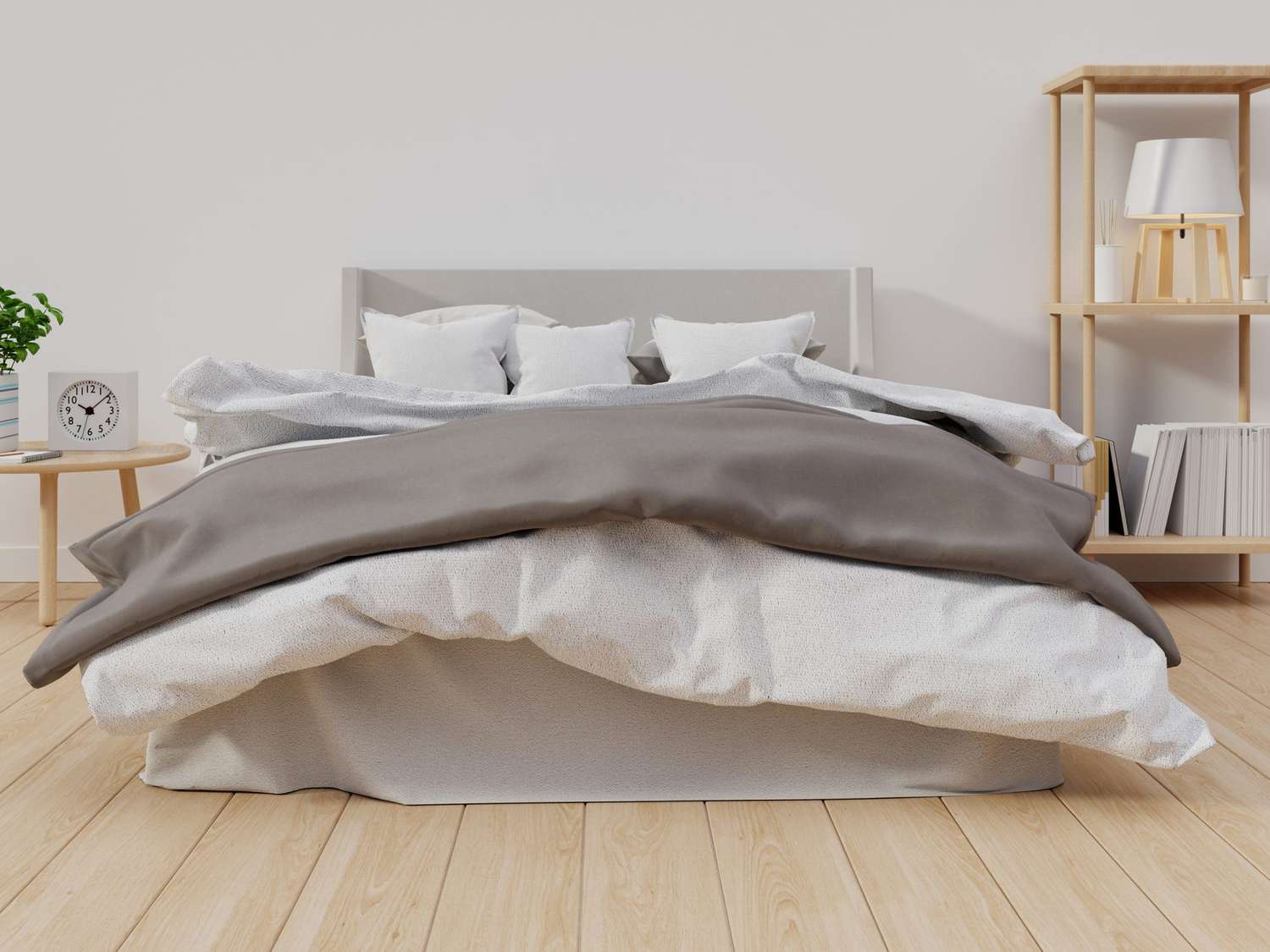
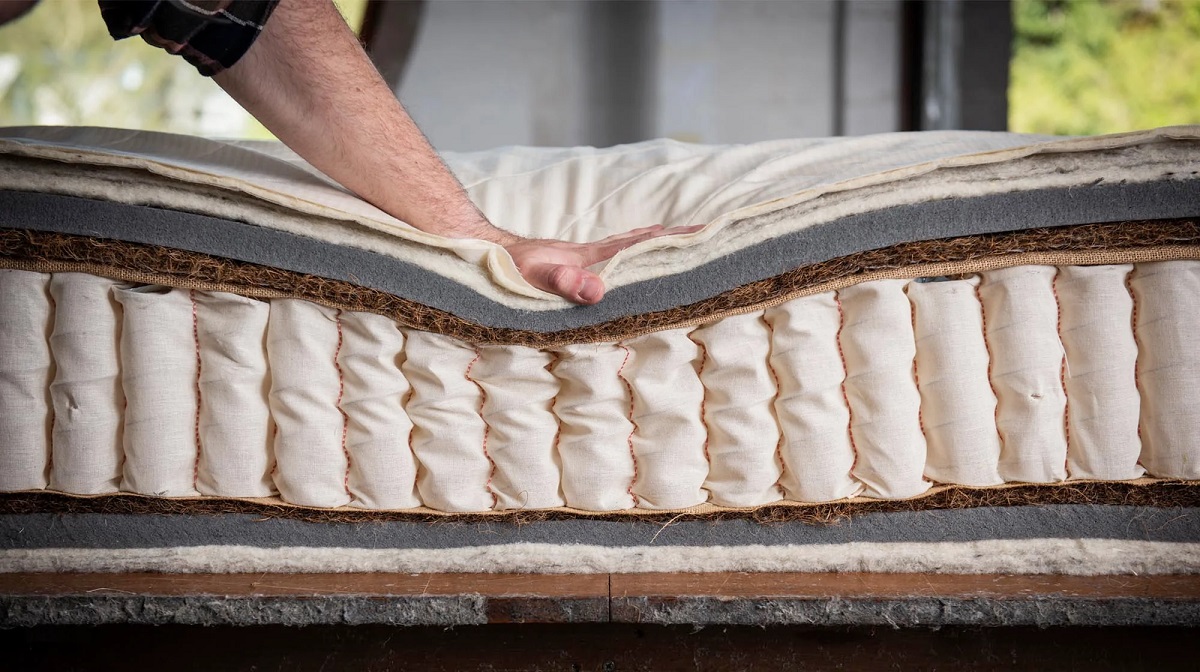



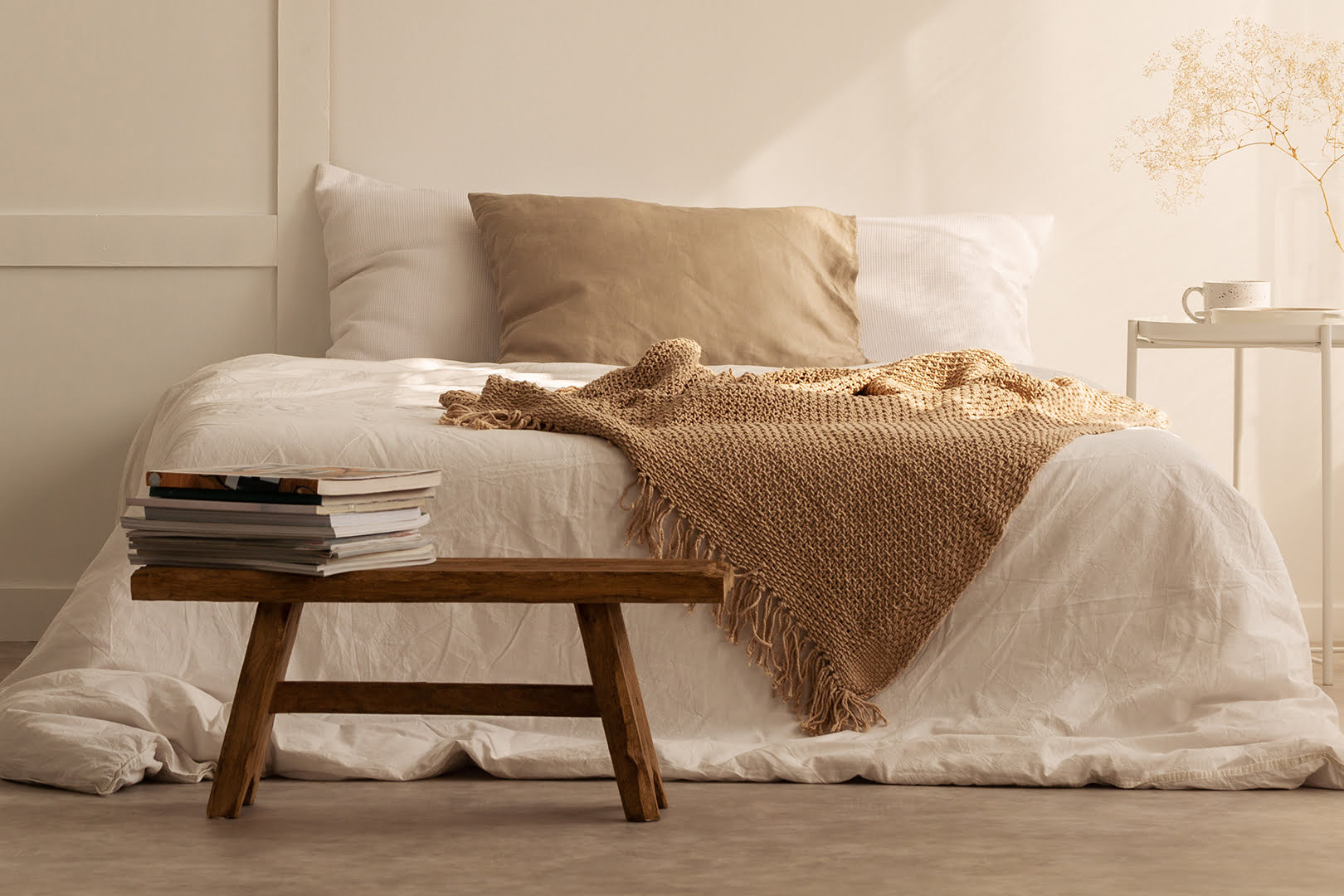




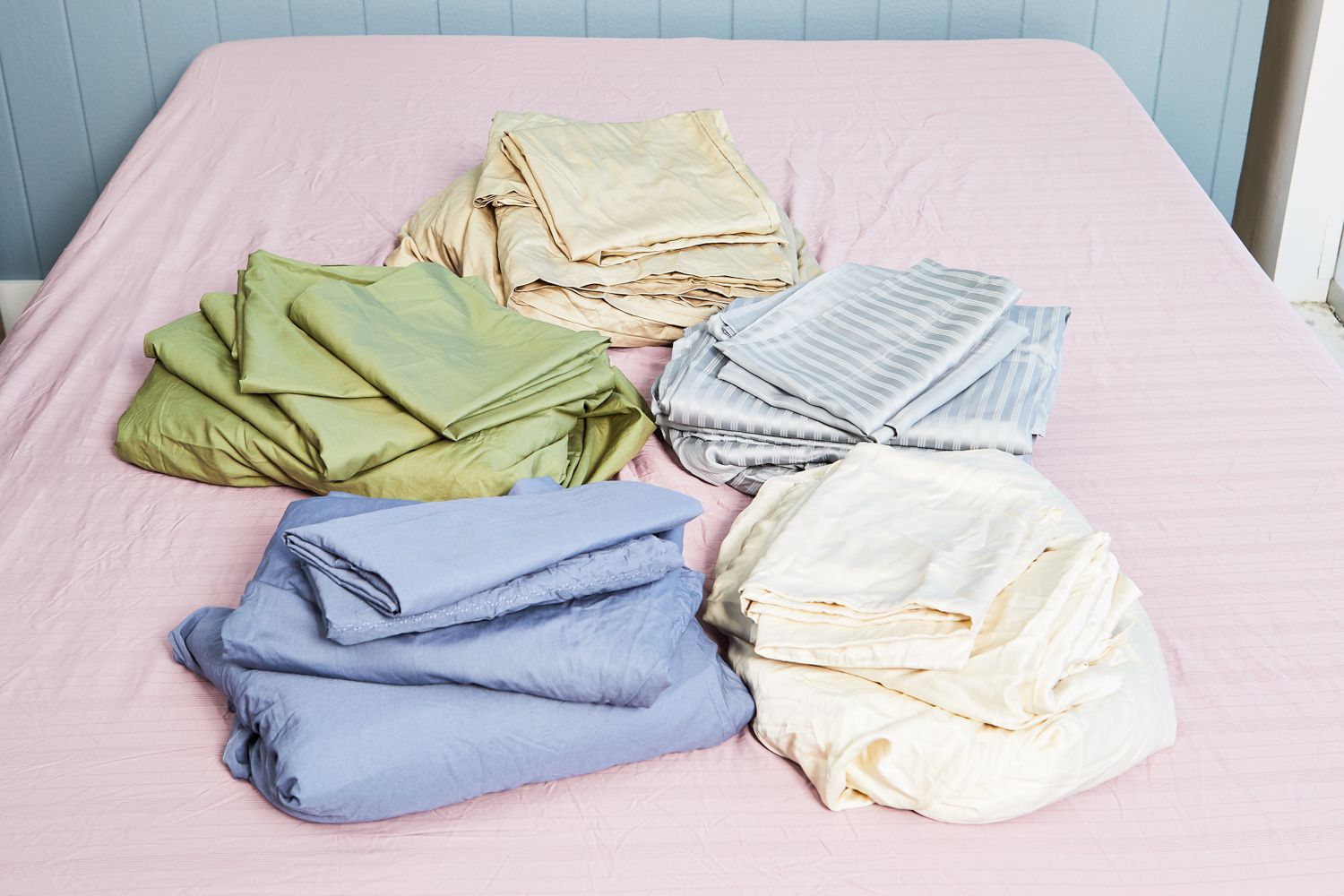


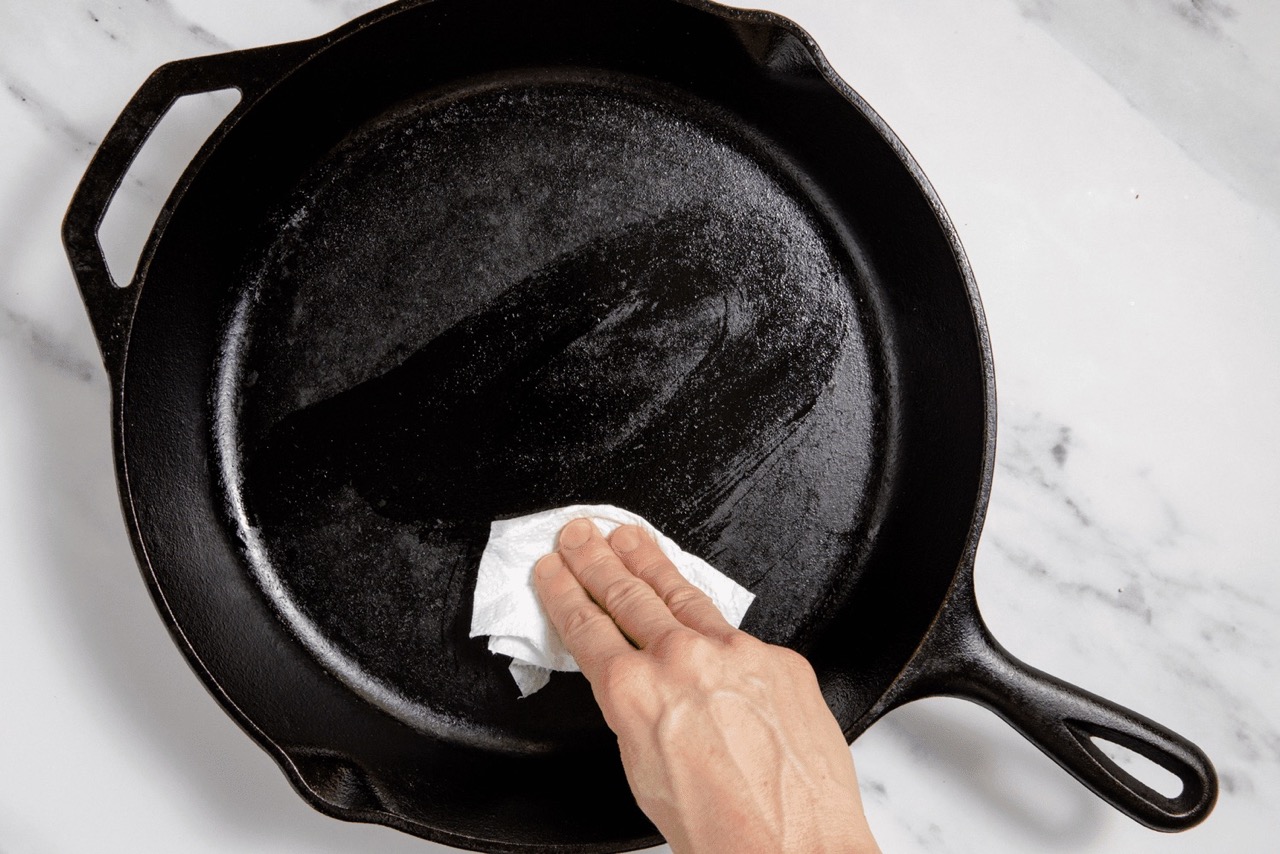

0 thoughts on “What Bedding Material Is Best? Sleep Experts Advise”